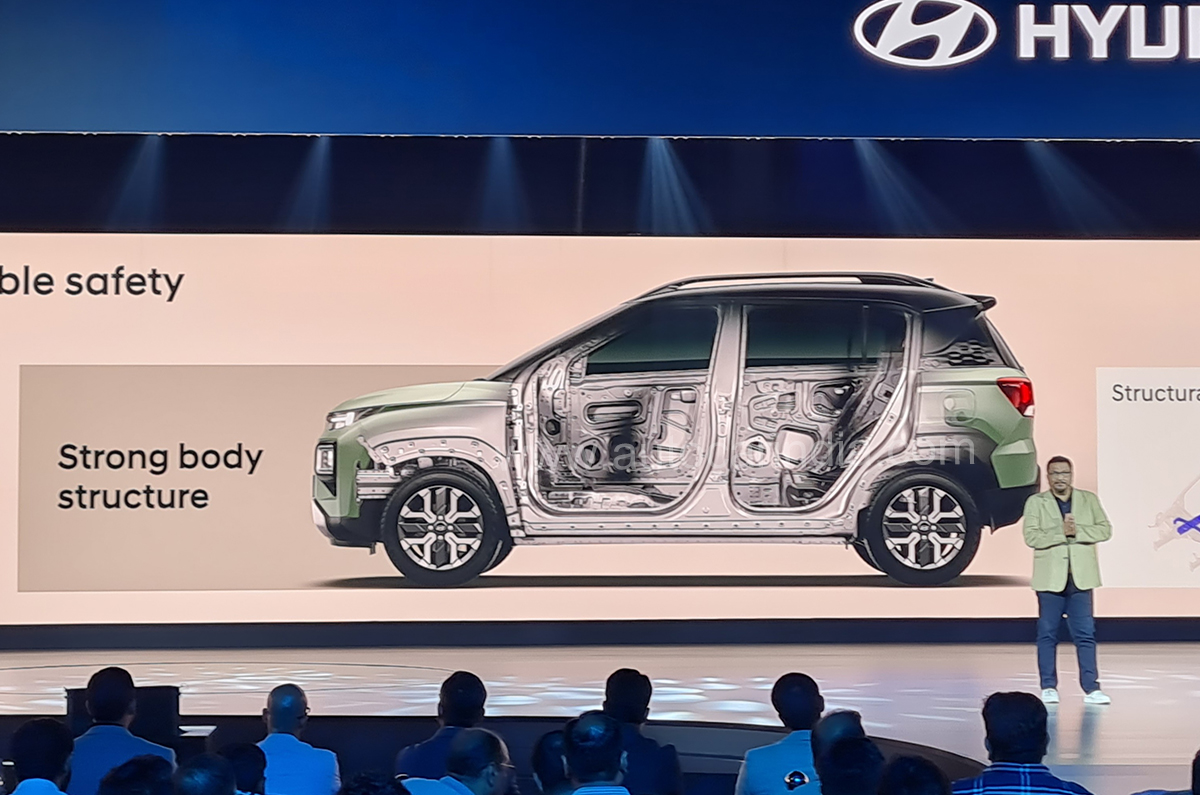Hyundai confident features like six airbags, ESC and three-point seatbelts all-around will yield strong crash test performance.
Hyundai Motor India (HMIL) is confident of its newly launched Exter micro-SUV achieving either a 4- or 5-star safety rating in voluntary crash testing. The Exter is the sole product in the entry-SUV segment to come with six airbags as standard and an Electronic Stability Control system (offered as optional right from the base trim) – features that Hyundai says will enable it to ace the Global New Car Assessment Programme crash tests.
Under Global NCAP’s recently revised crash test protocols for its Safer Cars for India programme, the UK-based vehicle safety watchdog mandates ESC as a standalone option, as well as an assessment on side-impact and pedestrian-protection tests, for a car to be evaluated for a 5-star safety rating.
Hyundai is also considering getting the Exter crash tested under the upcoming Bharat New Car Assessment Programme crash regime, which is likely to be introduced in the country from October 1, 2023. As per the draft Bharat NCAP protocol issued by the Ministry of Road Transport & Highways (MoRTH), the India-specific voluntary crash tests take references from the revised (July 2022 to December 2025) Global NCAP protocols, and demand ESC, pole side impact, pedestrian protection as well as seat-belt reminders as the qualifying safety requirements for a car to aim for five stars in its tests.
Hyundai India says it’s eyeing a ‘good NCAP rating’ for the Exter. “Safety has been a key focus area with the Exter, and with all the structural changes that we have done along with offering six airbags as standard, and ESC right from the base trim, we will have a good NCAP rating,” Tarun Garg, chief operating officer at HMIL, told our sister publication Autocar Professional.
For Global NCAP safety tests, ESC has become an important requirement to have a good star rating. The new protocols state that ESC should be available as standard in the bestselling variants or should be available in equal numbers in other variants. Hyundai has done just that by offering ESC as standard on most variants and as an option on the base variant.
Exhaustive list of safety features
While Hyundai India has received flak in the past for some of its popular models, like the midsize Creta SUV scoring only three stars in the GNCAP crash tests, along with an ‘unstable body shell’ remark, it is now looking to make amends. The Exter gets a mix of active- and passive-safety kit on board, including six airbags, seat-belt reminders and three-point seat belts for all seats, across all five trims. It additionally gets the option of advanced safety features, including ESC, vehicle stability management (VSM), hill-assist control (HAC), ISOFIX child-seat mounts, a direct TPMS (tyre pressure monitoring system), along with a dual-facing dashboard camera that records cabin as well as outside footage.
While Hyundai Motor India is confident of a good crash test rating for its latest set of wheels, only a Global NCAP or Bharat NCAP crash test result will determine if the carmaker is walking the safety talk.
Also see:


